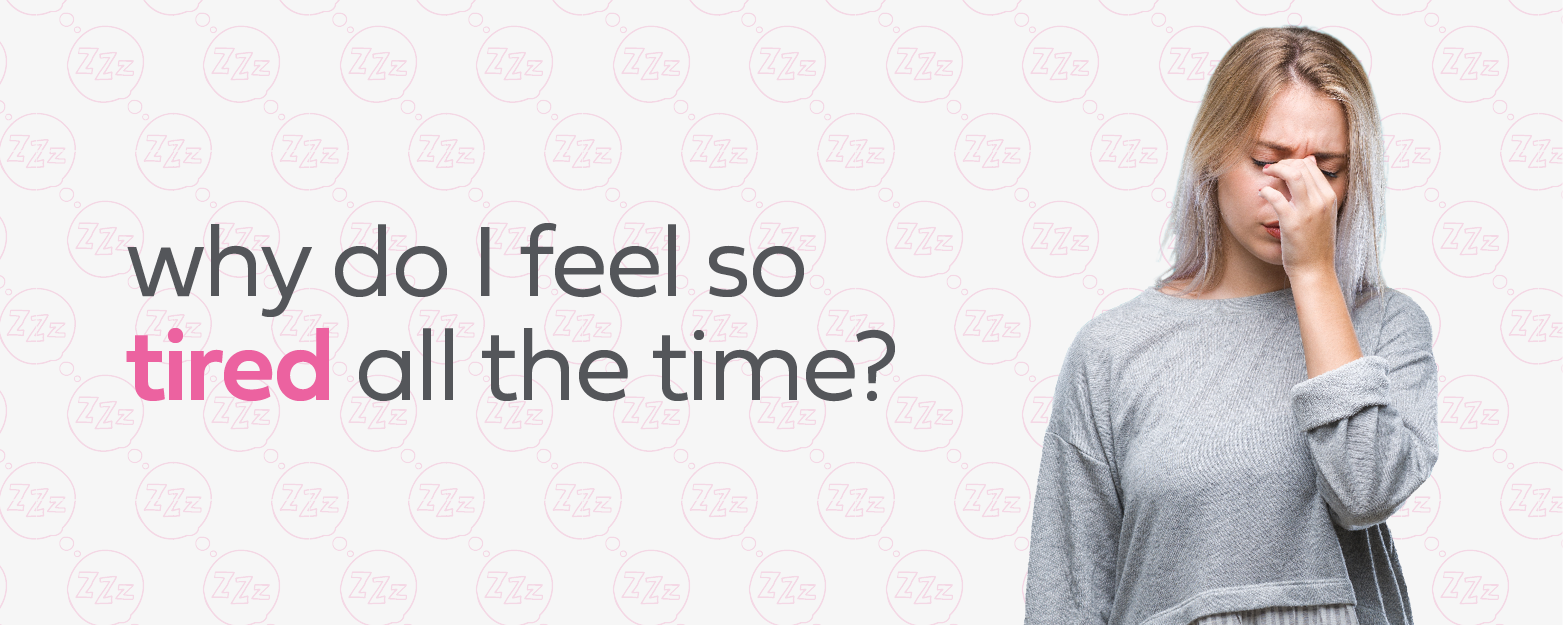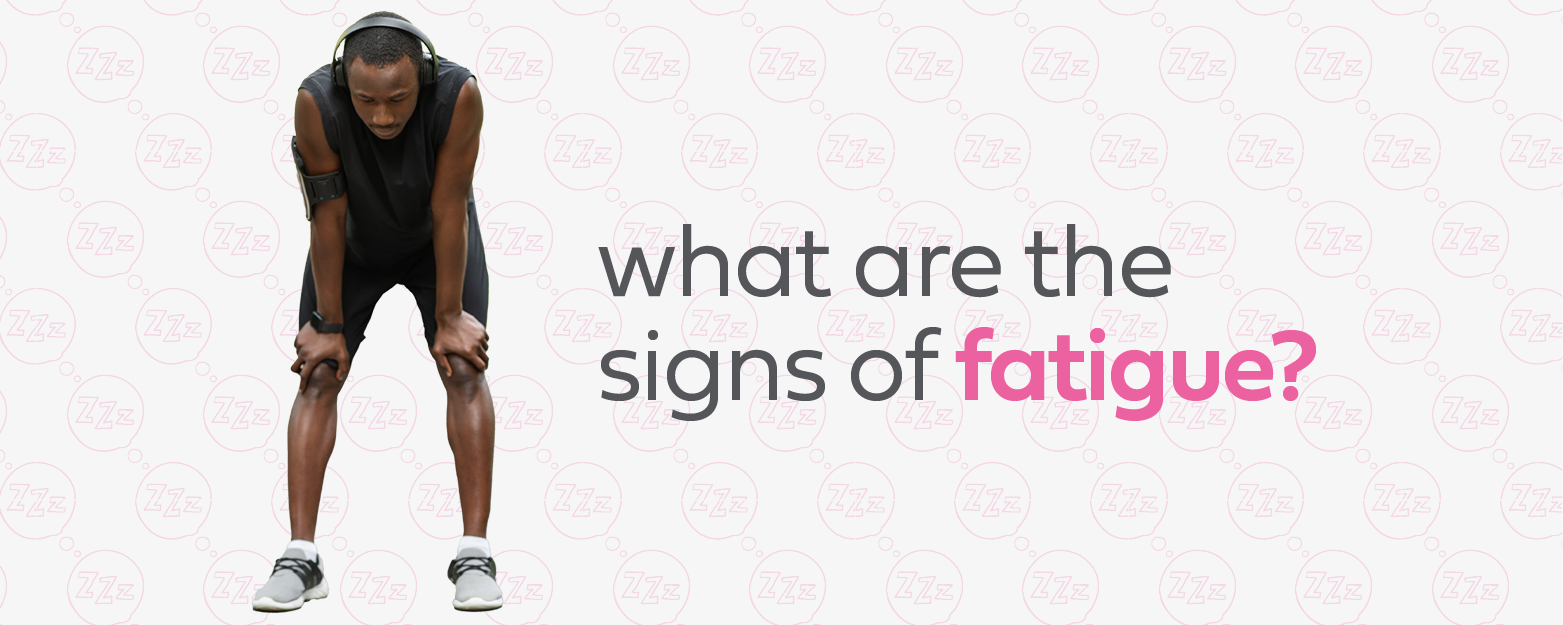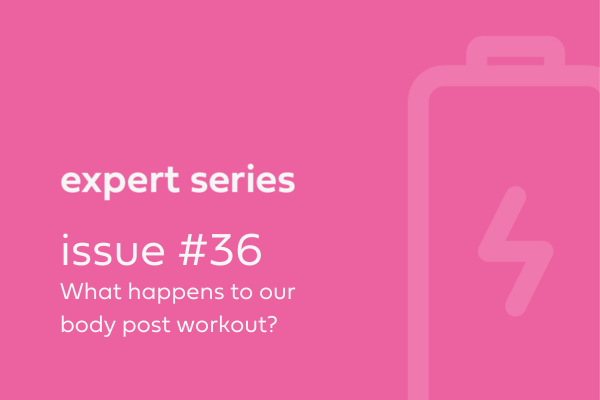How to Get Rid of Fatigue?
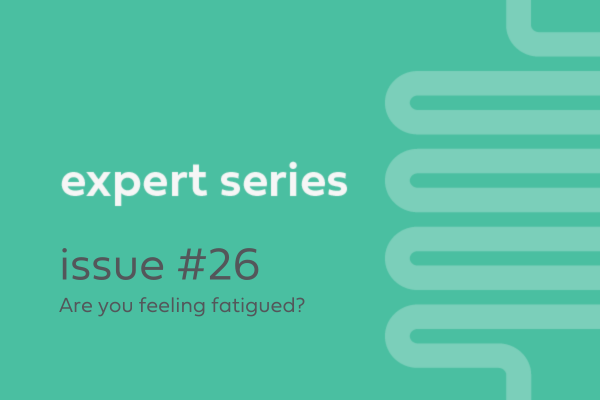
Do you find yourself constantly drained and lacking energy to tackle your day? Whether it’s recovering from a fun-filled, action-packed weekend (with a few drinks involved), pushing through a challenging workout, or simply bouncing back from a stubborn cold, we’ve got you covered.
Here, we delve into what causes fatigue, revealing what’s behind your exhaustion and equipping you with strategies to recharge and reclaim your bounce. We’ll also look at the remarkable benefits of aguulp for recovery, our best supplements for fatigue in liquid liposomal form. This formula is your ultimate ally in fast recovery and feeling like your true self.
What causes fatigue?
We all experience feeling tired from time to time – perhaps due to late nights, working long hours, family life, or disturbed sleep, which can all result in us feeling worn out. This type of tiredness is usually only temporary and, in most cases, can be relieved following a good night’s sleep or a period of rest.
However, tiredness that lingers even following a period of rest or a good night’s sleep or feelings of prolonged or extreme tiredness is a different form of tiredness known and is defined as ‘fatigue’, also referred to as ‘TATT’ (tired all the time).
There can be many factors behind what causes fatigue, and in the majority of cases fatigue can be traced to one or more lifestyle issues, including but not limited to:
- Poor diet
- Poor sleep habits
- Stress
- Lack of exercise (or too much exercise)
- Medications
Making changes to dietary or lifestyle habits and/or medications may help to relieve fatigue, but fatigue that is prolonged or of a ‘chronic’ nature (lasting for 6 months or more) can be a symptom of an underlying health condition.
There can be many underlying medical conditions that may be contributing to symptoms of fatigue and that affect different parts of the body. Some of the most common factors influencing what causes fatigue that you struggle to shift may include (but are not limited to):
- Infections
- Depression
- Anxiety
- Post traumatic stress disorder (PTSD)
- Nutritional deficiencies
- Autoimmune disorders
- Hormonal imbalances (including an under-active thyroid)
- Chronic fatigue syndrome
- Adrenal dysfunction
- Weight issues and/or eating disorders
Symptoms of Fatigue
Signs that you may be experiencing fatigue may include any or all of the following;
- Difficulty getting up in the morning or feeling unrefreshed despite adequate sleep
- Having trouble making it through the day
- Ability to perform usual tasks and activities affected
- Extreme tiredness lasting longer than a few weeks
- Brain fog, difficulty concentrating and/or memory problems
- Quality of life or ability to enjoy the usual things that you like
- Feeling depressed or low mood
- Feeling constantly irritable, angry or easily frustrated
- Diminished ability to deal with stress
- Muscle aches and pains
- Unexplained weight gain
- Cravings (particularly salt and high sugar foods)
If symptoms of fatigue is accompanied by other symptoms including any of the following, it is important to seek medical attention;
- Shortness of breath or pain in your chest, arm or upper back
- Unusually fast heart rate or heartbeat
- Pounding or fluttering sensations of the heart
- Headache or vision problems
- Nausea, vomiting or abdominal pain
- Muscle weakness
- Sudden or unexplained weight loss
- Thoughts of harming yourself or others
How to get rid of fatigue and feel more like you
*Provided it isn’t a medical condition that’s a cause of the fatigue, there are a number of simple lifestyle changes that can help to improve common symptoms of fatigue and restore energy levels;
Practise good sleep habits: aim for seven to nine hours of sleep every night. Going to bed and getting up at the same time very day can help regulate sleep cycles. What you eat prior to bedtime also has an influence on sleep quality. Consuming high amounts of slow releasing carbohydrate foods with low-moderate amounts of protein and small to moderate amounts of fats from plant sources (nuts, seeds, vegetable oils, vegetable oil spreads, avocados) increases serotonin (a calming neurotransmitter needed for maintenance of normal mood) production in the brain. Serotonin is then converted into melatonin, the hormone that promotes restful sleep.
Eat breakfast: within 90 minutes of waking to start off your energy and blood sugar on an even keel and kick start your metabolism.
Avoid the use of stimulants, especially in the hours leading up to bedtime and on an empty stomach. Dietary stimulants include caffeine, alcohol and artificial sweeteners. Electronic devices and exercise immediately before bed also act as a stimulant to the brain, making it harder for the brain to switch off for a restful night’s sleep. Stimulants also cause the body to release stress hormones which over time can lead to adrenal insufficiencies and associated symptoms (fatigue, irritability, mood swings, cravings, weight issues).
Stay hydrated: dehydration can be behind what causes fatigue, as every cell in the body requires water to function. Even being slightly dehydrated can cause feelings of tiredness and symptoms of fatigue.
Eat a healthy diet: a balanced diet including plenty of fresh fruits and vegetables can help to ensure your body is getting vital nutrients to function properly and to help you feel energised. Including plenty of magnesium and B vitamin food sources such as wholegrain and wholegrain cereals, nuts and seeds, beans and pulses and green vegetables, for energy release from food and to support the nervous system.
Avoid fast foods: convenient and as tempting as they are, high-fat, high-sodium foods are made with low quality ingredients which can increase your waistline and cholesterol, but not your energy levels. High-fat diets result in poor performance because they have a reduced amount of carbohydrate, which means there is less glycogen (fuel for energy) available, which can be what causes fatigue.
Eat healthy fats: many of us consume way too many harmful saturated fats, and virtually eat almost no healthy fats. Healthy fats are essential for supporting energy, joints, the immune system and recovery, and can be one of the key steps behind how to get rid of fatigue. Good sources include oily fish such as salmon, mackerel and trout. Other good sources include olive oil, nuts and seeds, flaxseeds, and chia seeds.
Eat little and often: eating (healthy) regular meals and snacks can help regulate blood sugar levels and prevent energy dips throughout the day. Blood sugar imbalances can be what causes fatigue, as well as irritability, mood swings, and hormonal imbalances.
Manage stress: yoga, mindfulness, meditation and regular exercise can help you relieve stress and gain more energy.
Exercise often: regular exercise is crucial for a healthy lifestyle. Though it might seem counter-intuitive, vigorous exercise can help you feel more energetic once you get used to it. But exercising too much can itself cause symptoms of fatigue, so talk to your provider about what’s best for you.
Reach and maintain a healthy
weight: talk to your healthcare provider about your ideal weight and try to stay within that range.
What are the best supplements for fatigue?
The best fatigue supplements will contain a blend of B vitamins, electrolytes, and vitamin C to support your muscle function, and to help reduce feelings of tiredness and fatigue, and that’s exactly what you’ll get with aguulp for recovery.
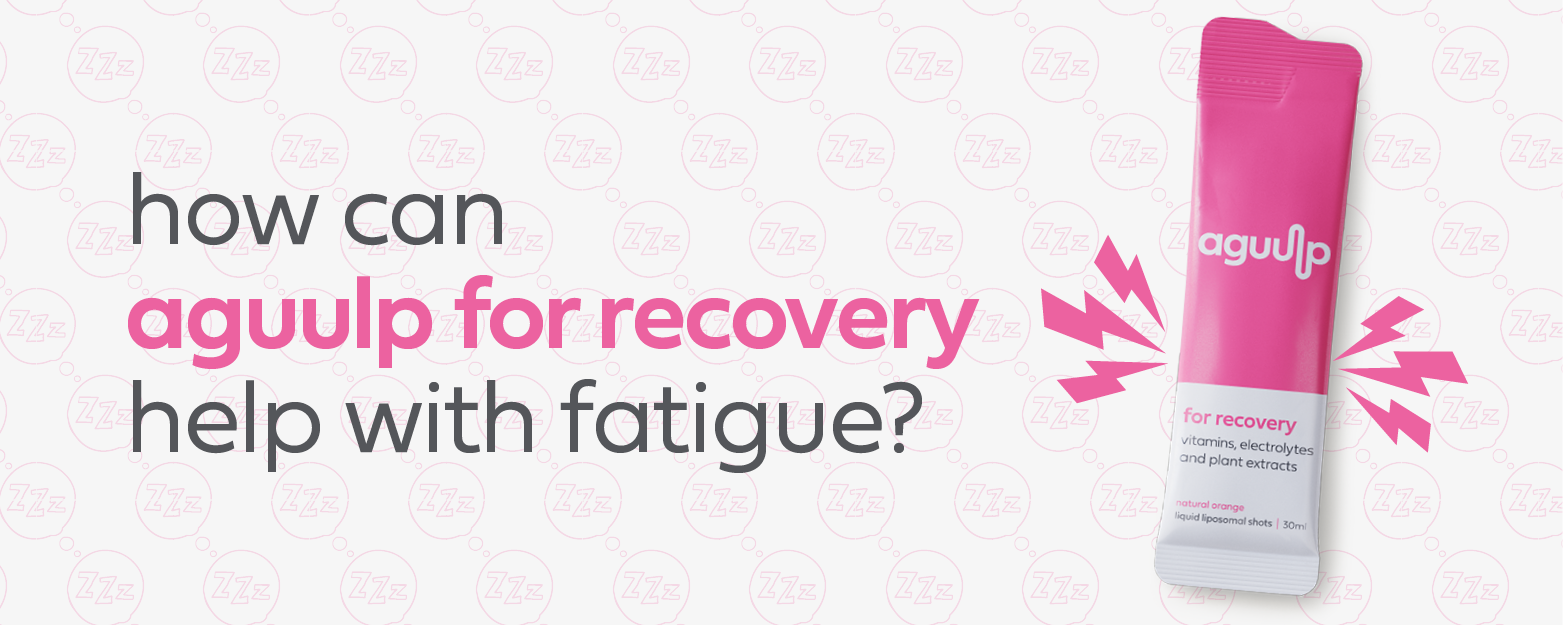
Vitamin B1, B2, B3, B5, B6 & B7 are all vital nutrients for energy support. B vitamins contribute to normal energy yielding metabolism, the reduction of tiredness and fatigue and the protection of cells from oxidative stress.
Vitamin B12 works closely with folic acid to make red blood cells and prevent anaemia, memory loss, nerve damage, muscle weakness, and fatigue. Vitamin B12 contributes to normal energy-yielding metabolism and the reduction of tiredness and fatigue.
Vitamin B9 (otherwise known as Folate or Folic acid )- a deficiency in folic acid can lead to anaemia which include symptoms of tiredness and fatigue, weakness, irritability and difficulty concentrating. Folate contributes to the reduction of tiredness and fatigue and to the normal function of the immune system.
Vitamin C contributes to maintaining the normal function of the immune system during and after intense physical exercise and the protection of cells from oxidative stress. Vitamin C contributes to the reduction of tiredness and fatigue.
Electrolytes have a range of important roles within the body, including muscle contraction, nervous system function, fluid balance and maintenance of the body’s pH level. During physical exercise, and in some cases of illness, fluids and electrolytes are lost through the skin in the form of sweat. It is vital to replenish depleted electrolytes following exercise or illness in order to prevent dehydration which leads to tiredness and fatigue.
Milk thistle Also known as ‘Silymarin’ milk thistle, this has been used medicinally for thousands of years as it is believed to have liver protecting properties and for this reason it and is often recommended for the heavy nights on the drinks. Studies have shown that silymarin can protect the liver cells from the poisonous effects of alcohol by maintaining levels of Glutathione; an important enzyme involved in alcohol metabolism. Milk thistle also acts as an antioxidant by reducing free radical production and has been shown in studies to help regenerate liver cells.
N-acetyl cysteine (NAC) – is a precursor to Glutathione and works by increasing Glutathione production which helps break down acetaldehyde and neutralise free-radicals. Acetaldehyde is responsible for liver damage and many of the symptoms following alcohol consumption. NAC has been shown in studies to help promote detoxification in the body and protect the liver and the kidneys from damage and harmful toxins.
Knowing how to get rid of fatigue is the first step to feeling more like yourself. Try the above steps for relief from symptoms of fatigue, and remember to speak to your GP if these linger or you’re worried about how you feel.
Shop our full range of liquid supplements, including fatigue supplements, today.
References
- https://www.gov.uk/government/publications/great-britain-nutrition-and-health-claims-nhc-register
- https://efsa.onlinelibrary.wiley.com/doi/pdf/10.2903/j.efsa.2009.1226
- Shrimanker I, Bhattarai S. Electrolytes. 2023 Apr 23. In: StatPearls [Internet]. Treasure Island (FL): StatPearls Publishing; 2023 Jan–. PMID: 31082167.
- Institute of Medicine. Food and Nutrition Board. Dietary Reference Intakes: Thiamin, Riboflavin, Niacin, Vitamin B6, Folate, Vitamin B12, Pantothenic Acid, Biotin, and Choline. Washington, DC: National Academy Press; 1998.
- Kelly GS. Clinical applications of N-acetylcysteine. Altern Med Rev. 1998 Apr;3(2):114-27. PMID: 9577247.
- Abenavoli L, Capasso R, Milic N, Capasso F. Milk thistle in liver diseases: past, present, future. Phytother Res. 2010 Oct;24(10):1423-32. doi: 10.1002/ptr.3207. PMID: 20564545.
- Rainone F. Milk thistle. Am Fam Physician. 2005 Oct 1;72(7):1285-8. PMID: 16225032.
- Vargas-Mendoza N, Madrigal-Santillán E, Morales-González A, Esquivel-Soto J, Esquivel-Chirino C, García-Luna Y González-Rubio M, Gayosso-de-Lucio JA, Morales-González JA. Hepatoprotective effect of silymarin. World J Hepatol. 2014 Mar 27;6(3):144-9. doi: 10.4254/wjh.v6.i3.144. PMID: 24672644; PMCID: PMC3959115.
.
